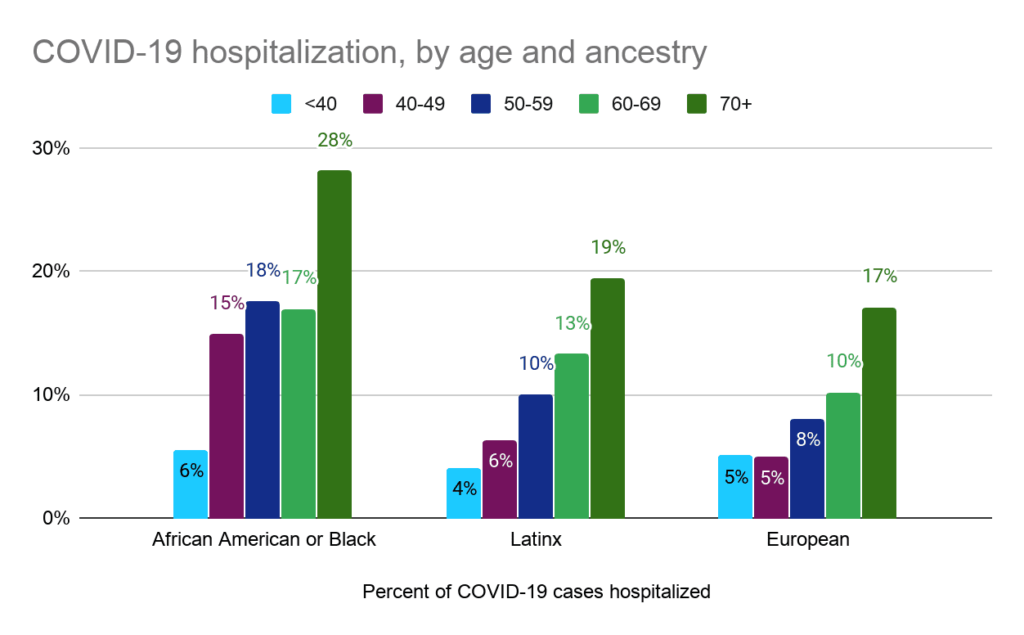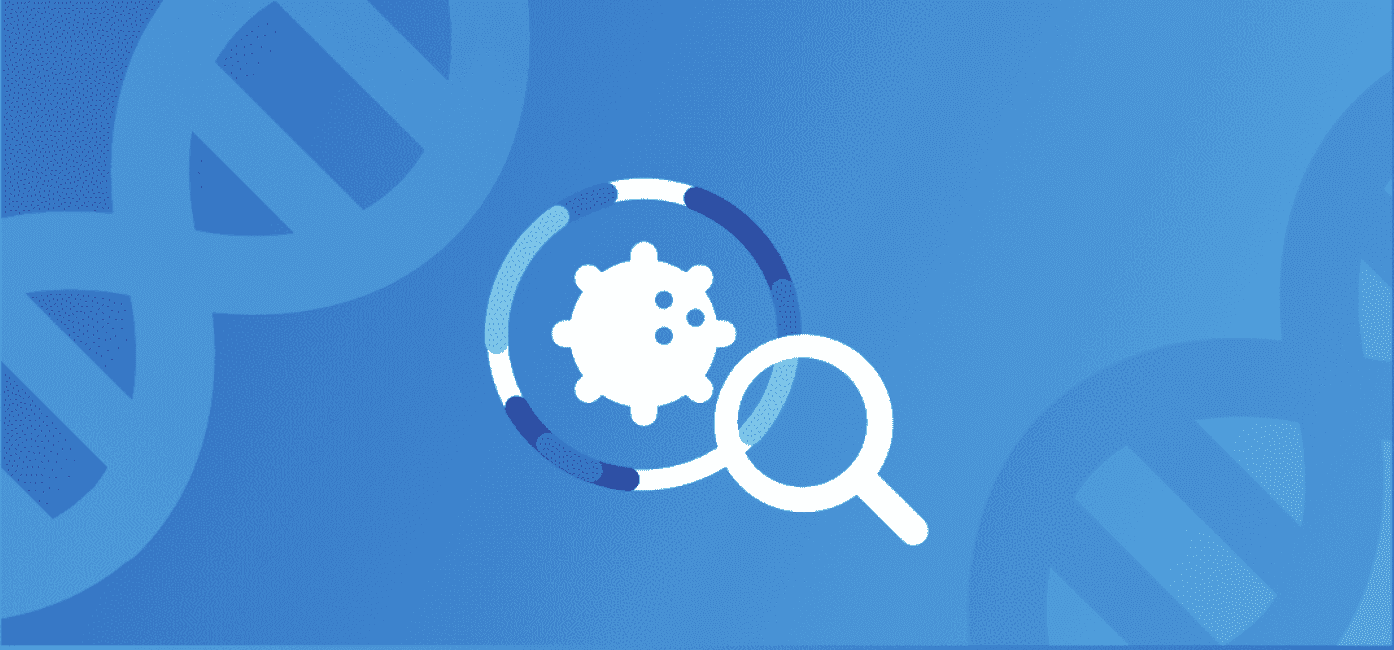By Janie F. Shelton, Ph.D., MPH, Senior Scientist at 23andMe*
Black people and Latinos are disproportionately affected by COVID-19, according to new data from scientists at 23andMe.
23andMe’s data shows that African Americans, who tested positive for COVID-19, were almost twice as likely as whites to be hospitalized. Latinos had a slightly higher risk for hospitalization compared to whites. When adjusted for age, sex, income, and other underlying health conditions, Black people are still 80 percent more likely to be hospitalized for COVID-19 than whites.
Stark Differences
Even after adjusting for those factors, 23andMe scientists still found stark disparities in both susceptibility and severity from the virus.

In other words, race and ethnicity still stand out as a significant risk factor for infection with COVID-19 as well as for the most severe symptoms that require hospitalization. The preliminary data on people of other underrepresented communities also raises concerns, but without more research participants of different racial and ethnic backgrounds, in particular of Asian descent, our scientists are unable to make robust statistical findings.
Replicating other Studies
23andMe’s data replicates findings from the US Centers for Disease Control and Prevention (CDC) showing that not only are Black people and Latinos more likely to contract the virus, they are also much more likely to end up in the hospital across all age groups.

These findings add another stark reminder of a much larger issue — the glaring disparities in health care, health care access, and health outcomes within the United States for Black people, Latinos, and other under-represented racial and ethnic groups. Thus far, there is no data to indicate that there are genetic variants among these populations to explain these differences in outcomes.
23andMe’s COVID-19 Research Study
The preliminary findings are among dozens of new insights researchers have uncovered as part of 23andMe’s COVID-19 research study. 23andMe scientists are drawing data from more than one million people participating in the study, including more than 20,000 who have been diagnosed with or tested positive for the virus, and more than 1,000 who have been hospitalized. It is among the largest genetic study of COVID-19 in the world.
Since the study’s launch in April, 23andMe has released a range of new insights about the virus, including that O blood type appears to be protective against susceptibility for COVID-19. The study also found genetic variants that appeared to be protective. It is worth noting that African American and Latinx populations are more likely to have Type O blood than Europeans, and despite that, infection risk and hospitalization risk are higher in those groups.

More COVID-Related Findings
Although the study is focused on genetic factors underlying susceptibility and severity, the researchers are also finding interesting non-genetic factors as well as other impacts from the pandemic. For example, 23andMe recently reported data on how physical activity has decreased since shelter-in-place orders began. And our scientists have found how certain personality traits influence people’s adherence to social distancing recommendations.
Together, these data are helping scientists understand the many dimensions to why the virus affects people so differently. The hope is that this data may offer insights for combating the pandemic.
But data on racial and ethnic disparities from 23andMe scientists as well as other researchers sheds a light on racial disparities in the impact of COVID-19. This is also more impetus to the broader discussions around the need for more equity in health care. Recently scientists from the National Academy of Sciences held a workshop looking at what might be underlying the disproportionate impact the virus has had on Black communities, as well as the best approaches to remedy that.
One recent initiative, called the National Infrastructure for Mitigating the Impact of COVID-19 within Racial and Ethnic Minority Communities, coordinated by the Morehouse School of Medicine, aims to improve communication around the condition among underrepresented communities as well as ensure access for those communities when a vaccine or other treatments become available.
*23andMe’s COVID-19 study is made possible through the participation of more than a million of our customers in the U.S. who consented to answer survey questions for this research. This study also involves the hard work of a core team of our health researchers, program/product managers, data scientists, engineers, and geneticists. Among them are: Michelle Agee, Amanda Altman, Stella Aslibekyan, Adam Auton, Jess Bielenberg, Adrian Chubb, Daniella Coker, Raffaello d’Amore, Scott Dvorak, Alison Fitch, Scott Hadly, Pooja Gandhi, Andy Kill, Trung Le, John Matthews, Jennifer McCreight, Taylor Morrow, Sungmin Park, Jeff Pollard, Anjali Shastri, Janie Shelton, Teresa Filshtein Sonmez, Jason Tan, Lindsey Tran, Cat Weldon, Chelsea Ye, Yiwen Zheng.




